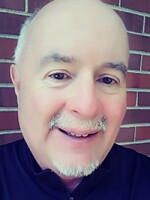Middlebury College Professor Dr. Carly Thomsen said there is a disconnect between the desires, logics, and strategies of LGBTQ people in the rural Midwest and the "out, loud and proud" strategies of the gay rights movement. Thomsen, who speaks at Illinois State University December 5, said her research of LGBTQ living in rural South Dakota and Minnesota uncovered a striking difference in how they consider themselves "supported" compared to their urban counterparts."One of the questions I asked interviewee's was 'do you feel like you have a gay community?' And one of the interviewee's answered, 'yes, but they are all straight.' This is a radically different understanding of gay community than typically circulates. And it's an understanding of community that is defined by people who SUPPORT you rather than people who are LIKE you," said Thomsen.
Thomsen said that finding further informed her research, in that it flipped many commonly held assumptions about LGBTQ people on its head, including identity, community, and visibility. It got her thinking deeper about the meaning of words used by (and about) especially gay people, and how it materially affects their lives. For example, the assumption that rural areas are naturally more hostile to gays and lesbians than urban areas is not what she found in her 51 interviews of women in rural South Dakota and Minnesota.
"When I asked people if they had experienced homophobia, most said 'no' or that even if they had experienced homophobia, they also had experienced just as much support or more support," said Thomsen. "But they also pointed out that they felt like they had experienced a lot of sexism in their life."
Thomsen connected those comments to contemporary gay rights strategies currently being criticized by queer theorists, that that the urban idea of "loud and proud" doesn't work well in rural America. At least not in the upper Midwest areas she studied.
"Rather than considering ourselves to be different from everybody else, and operate in a way where we create these gay subcultural spaces that run counter to dominant ways of being, now LGBTQ people have been folded into precisely what is imagined as a good person," said Thomsen.
And she said that "folding" happens through emphasizing connections to family, farm and land, and community institutions. This runs counter to one of the norms common to "coming out" in urban areas, that is, to produce oneself as different.
"The ethos of the rural functions in a different manor," said Thomsen. "People want to support one another, they want to be seen as LIKE one another in some ways. Of course this influences then how people articulate or don't articulate their sexuality."
Thomsen emphasized that she doesn't view the strategy of weaving oneself into the community as being closeted, or that rural LGBTQ people are more regressive or anachronistic than urban LGBTQ people.
"Out-ness itself, the visibility itself relating to what gay community and identity mean are context specific ideas. Rather than discussing these things with all the complexity they require, the assumption instead is that the way it's being done in urban is somehow indicative of progress and all that's right with the world," said Thomsen.
Though she doesn't suggest LGBTQ people and activists should adopt rural approaches wholesale, she did say those activists could learn why looking at LGBTQ issues through an urban perspective doesn't work well in rural areas.
"Why do we automatically assume that life for LGBTQ people in rural areas is defined through the lens of homophobia, violence, and fear?" said Thomsen. "And what are the ramifications of producing the rural in this way, and how does it actually let off the hook LGBTQ people in urban places from thinking about ongoing social issues in urban places? The rural get positioned as a real homophobic, violent place. There's a scholar who writes about this and has said there are actually more homophobic hate crimes in urban places than there are in rural places because of the way hate crimes are typically rooted in anonymity. And there isn't that kind of anonymity in rural places."
She said that example alone should push scholars and activists to think more critically about how certain spaces get produced as homophobic, and others get produced as liberated.
Dr. Carly Thomsen is an assistant professor of gender, sexuality, and feminist studies at Middlebury College. She will screen part of her new documentary In Plain(s) Sight and give a talk titled "Queering the Rural: Visibility, Politics, and the Production of Place" at 12:30 p.m. Monday, December 5, in the Illinois State University LGBT/Queer Studies and Services Institute, located in the Professional Development Annex at 207 S. Main St., Normal.



